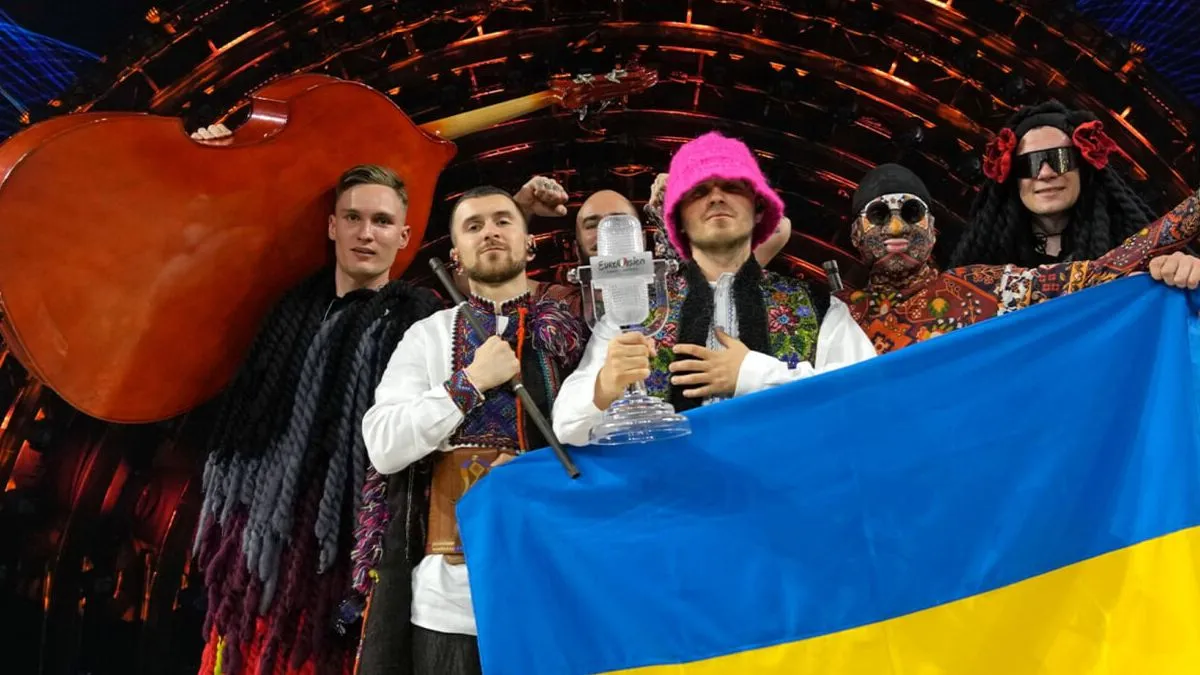
Photo Credit: Eurovision World
Ukraine has won Eurovision 2022. Ukraine’s Kalush Orchestra won the song contest with their song, “Stefania.”
The United Kingdom’s Sam Ryder took second place with the song “Space Man.” Ukraine was widely expected to win this year’s song contest, held in Turin, Italy. But it was unclear if the Kalush Orchestra would even be able to compete following the Russian invasion of Ukraine earlier this year. This year’s Eurovision Song Contest isn’t the first to be impacted by hostilities between the two countries.
Eurovision has a strict no politics rule, which is hard to administer when there is an active conflict between two contestant countries. In 2016, Russia complained that Ukraine’s song entry, “1944,” was political because it contained lyrics about military action in Crimea. Russia asked that the song be banned, but Ukraine argued the son was about Joseph Stalin’s invasion of Crimea – not Putin’s invasion in 2014.
The European Broadcasting Union (EBU), which operates Eurovision, decided the song was not political. Ukraine’s “1944” went on to win Eurovision 2016. Tensions rose again in 2017 when the contest was hosted in Kyiv. Ukraine threatened to arrest Russian performer Julia Samoilova if she entered the country. Ukraine banned her for three years, which made her performance impossible. The EBU was prepared to allow her to perform via video link, but Russia pulled out of the contest entirely in 2017.
Meanwhile, Italian police say they have thwarted hacking attempts by pro-Russian groups during the semi-final and Saturday finals of Eurovision. “During voting and the performances, the police cybersecurity department blocked several cyber attacks on network infrastructure by the ‘Killnet’ hacker group and its affiliate, ‘Legion’,” Italian police told Reuters.
The EBU has also issued a statement on irregular voting patterns detected in the results of six countries. “In order to comply with the Contest’s Voting Instructions, the EBU worked with its voting partner to calculate a substitute aggregated result for each country concerned for both the Second-Semi Final and the Grand Final,” the statement says.
“The EBU takes any suspected attempts to manipulate the voting at the Eurovision Song Contest extremely seriously and has the right to remove such votes in accordance with the Official Voting Instructions, irrespective of whether or not such votes are likely to influence the results and/or outcome of the voting,” the statement concludes.

